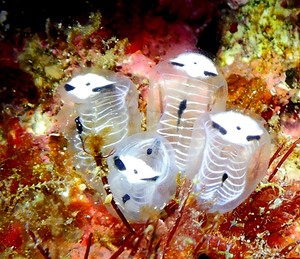By YU FUJINAMI/ Staff Writer
October 30, 2020 at 07:00 JST
Researchers have developed a highly heat-resistant bioplastic material that can be used for making car parts and construction materials, a discovery that could open the doors wider to adopting bioplastics in manufacturing.
Scientists from the University of Tokyo, the Japan Advanced Institute of Science and Technology and other institutions said they made the new plastic material from pulp, an ingredient for producing paper.
The plastic can withstand atmospheric temperatures of up to 500 degrees, which is important because bioplastics have otherwise been limited in their use due to their relatively low heat resistance.
“The material has excellent heat resistance and flame retardance, and it is also lightweight,” said Yasuo Onishi, an applied microbiology professor at the university and research team member. “It can be adopted for components around car engines, as well as parts for aviation and space equipment.”
Bioplastics, which are produced by fermenting sugar derived from corn and sugarcane fibers, are believed to have the potential to play an important role in a more recycling-oriented society.
Onishi and his colleagues explored ways to overcome the lack of thermal resistance and successfully synthesized a new bioplastic that has a completely different chemical composition from normal.
They improved the process of using microorganisms in production while using the same ingredients used for making existing bioplastics.
When the researchers tested the new material in a nitrogen-filled environment, they discovered it does not decompose until the temperature reaches 743 degrees, which compares with the highly heat-resistant synthetic fiber Zylon, which can withstand heat up to 715 degrees.
Bioplastics currently on the market are vulnerable to high temperatures exceeding 200 degrees, which has limited the use of conventional, eco-friendly plastic materials to products such as spoons, cups and shopping bags.
But this new bioplastic is more heat tolerant than aluminum and magnesium, so it can be combined with those metals to make car parts and building materials, according to the scientists.
The team also said its production costs can be reduced by genetically modifying microorganisms to generate a larger output and increasing the efficiency of chemical reactions.




















Stories about memories of cherry blossoms solicited from readers
Cooking experts, chefs and others involved in the field of food introduce their special recipes intertwined with their paths in life.
A series based on diplomatic documents declassified by Japan’s Foreign Ministry
A series on the death of a Japanese woman that sparked a debate about criminal justice policy in the United States
A series about Japanese-Americans and their memories of World War II
Here is a collection of first-hand accounts by “hibakusha” atomic bomb survivors.